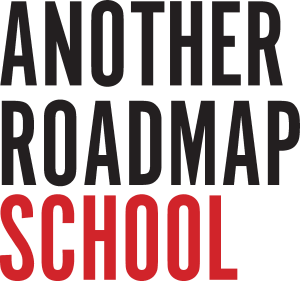The Ljubljana working group has been formed in October 2011 in order to join their experiences and professional knowledge to critically assess the influences of the ideology to the elementary school curriculum, especially regarding the arts education as well as to collect the case studies of emancipatory educational practices from the territory of ex-Yugoslavia. The members are: Adela Železnik, senior curator at the MG+MSUM (Moderna galerija / Museum of Modern Art plus Museum of Contemporary Art Metelkova), Darko Štrajn, PhD, professor and researcher at the Educational Research Institute in Ljubljana, Valerija Vendramin, PhD, senior research associate at the Educational Research Institute in Ljubljana and Božidar Flajšman, PhD, Professor of Fine Arts.
The initiator of the group is a senior curator at the Moderna galerija, who’s been interested in different forms of horizontal collaboration with various agents and collectives, based on the concept of emancipatory practices known as radical education. Working within the national institution for modern and contemporary art for 19 years she’s been endevouring to connect the fields of art, political activism and education. Being currently based at the Museum of Contemporary Art Metelkova she tries to engage various local forms of radical education to empower both the MG+MSUM / Moderna galerija, an Eastern Europian institution endeavoring for an equal exchange of ideas in the international world, and other local agents likewise struggling against commercialization, creative industries and increasing ideologization of our local space.
Darko Štrajn and Valerija Vandramin are both members of the Educational Research Institute in Ljubljana. Darko Štrajn has a lot of knowledge about the historical development of he formal edcational system from ex-Yugoslavia to the present, as being the director of the Educational Research Institute for 8 years. He is an author of numerous critical writings on the relationship between ideology and education such
as Counter – identification and politics of art in 2012, Reproduction od society through education in 2012
and is especially interested in media education as well as the identity in a notion of the Eastern and Western European Cinema.
Valerija Vendramin holds a PhD in Women’s Studies and her points of interests are feminist theory and cultural studies in connection to the issues concerning the conceptualisation of sexual difference, canon and curriculum. She is the author of various articles on these subjects and the translator of a number of relevant theoretical works. In the past she has collaborated in two projects concerning cultural education (headed by Peace Institute) and literary education (stress laid on gender issues and conceptualizations of children). She is also the author of the book Shakespeare’s Sisters: Feminism, Psychoanalysis, Literature and co-author (together with Renata Šribar) of the book Genders, Sexuality and Violence through New Media (both published in Slovenian).
Božo Flajšman is a professor of fine arts, being active in various non-governmental organizations. He is an initiator in ecological issues and sustainability in arts education, he collaborated with Russell Court, for which he drafted a paper enled Ecological Genocide, he organised various education programs and land art workshops for grammar school students. He is politically very active, in the current turbulent political stuation he (together with Darko Štrajn) is one of the initiators for the new democratic forum.
The research will take the UNESCO document as a starting point to show the parallels that that expressions such as “creativity, imagination, and progress” have in the neo-liberal terminology the government is using.
The core members of the group plan to collaborate in the process of their research also with other individuals and groups interested in the topics.
